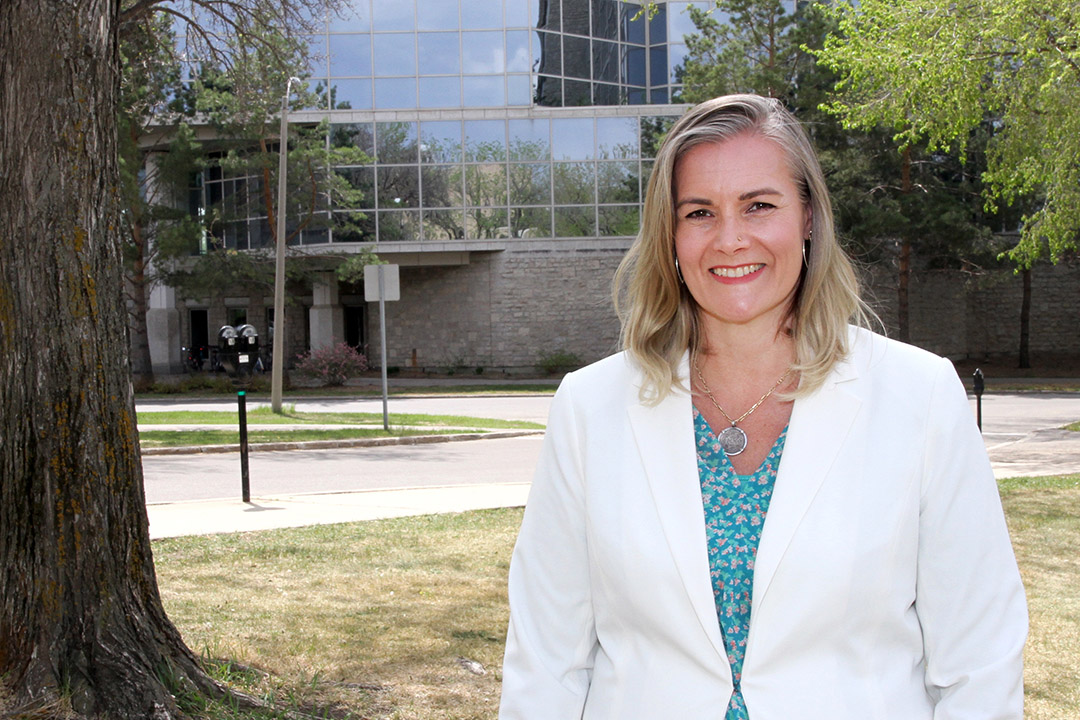
Employee engagement survey results released
For Naomi Taoubi, the results of this year’s employee engagement survey go far beyond the numbers.
By Jody GressAs the project lead of the bi-annual survey, the senior consultant in the People and Resources portfolio at the University of Saskatchewan analyzes the quantitative and qualitative data collected through the survey to create an understanding of employee trends across campus.
“The overall employee engagement and enablement scores are important benchmarks for the university, but the real value is in the patterns and stories that we see based on the various views we can take of our data, as well as in the college, unit, and departmental level reports,” said Taoubi. “An engagement survey is a snapshot at a point in time. However, the results stand to serve us over a much longer period.”
Taoubi reported that overall, a safe working environment and a feeling that their unit/college leader cared about their well-being, ranked highest amongst employee responses.
“It was reassuring to see progress in key areas like employee wellness and safety, as targeted efforts and initiatives have been ongoing in both of these,” said Taoubi.
She also noted that a high percentage of employees understand the university’s strategic priorities and goals, believe that they are the right ones, and see how their work contributes to them. Taoubi credits the high recognition and approval to the recent release of the new university plan—entitled The University the World Needs—in October, 2018, and subsequent planning activities across campus.
“The acknowledgement of the university’s strategic priorities reflects the extensive level of collaboration that went into the development and sharing of the final version of the university plan,” she said. “Having employees understand how their work contributes to the university’s priorities sets us on a great path to delivering on the objectives set out in the plan. It also suggests that employees will experience work with a greater sense of purpose and possibly fulfilment.”
This survey also identified some key areas for improvement.
“We see from the survey results that the university can go further to build a stronger culture of inclusivity for all employees,” said Taoubi. “Results also showed that, overall, employees feel we need to be better in terms of sharing ideas, supporting one another across teams, and collaborating. Ultimately, we all own these results and need to contribute to celebrating strengths and making positive changes.”
Taoubi works closely with senior leaders across campus to break down the results and pinpoint specific areas to improve.
“President (Peter) Stoicheff and the President’s Executive Committee have reviewed the institutional level results and have shared their desire that leaders across campus value the importance of the information the survey provides,” added Taoubi.
Taoubi highlighted that a number of university initiatives have utilized the outcomes of previous employee engagement surveys to help inform and identify priority areas of focus and align activity to support employees.
“One example would be the creation of our new performance management framework, Career Engagement, which is being implemented across campus to Exempt, ASPA and CUPE 1975 staff,” she said. “We’re also in the midst of updating our employee onboarding processes to ensure our people have the right training and resources to do their work well.”
The complete university-wide results are now available, while individual college, school, unit, and department-level reports are provided to leaders to share with members of their team.

